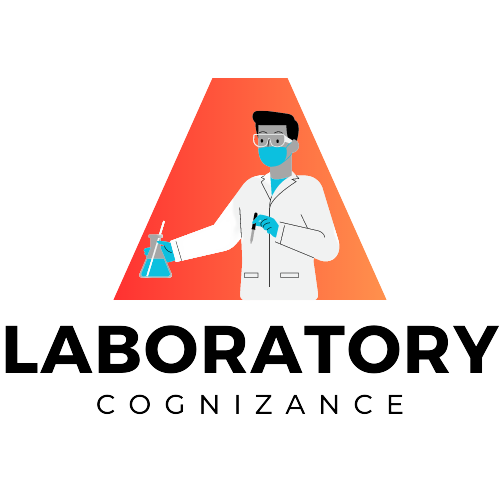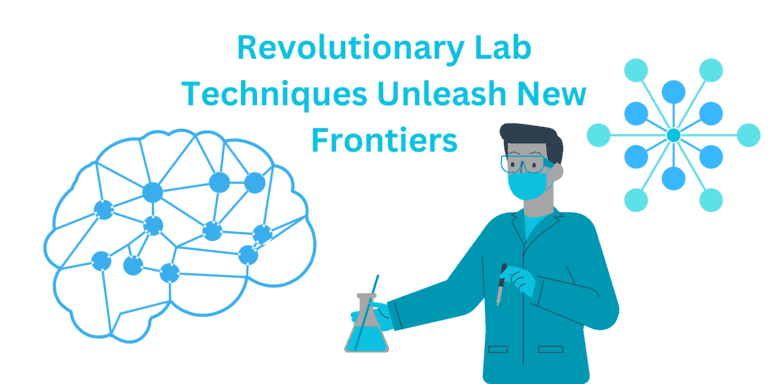Introduction
In the dynamic landscape of scientific research, laboratories worldwide are witnessing remarkable breakthroughs thanks to the continual advancement of lab techniques. This post delves into several pioneering innovations that have revolutionized scientific inquiry, pushing the boundaries of knowledge and unlocking new possibilities across various disciplines.
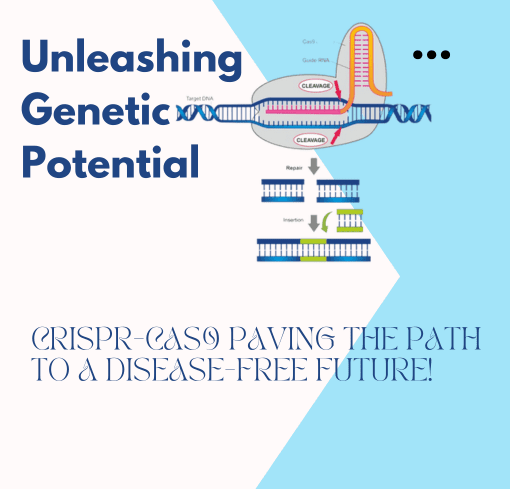
CRISPR-Cas9 Gene Editing Technology: Pioneering the Unfathomable Frontiers of Genetic Research
At the forefront of genetic research stands the groundbreaking CRISPR-Cas9 gene editing technology. With its perplexing capacity to harness the precision of molecular scissors, this revolutionary technique has metamorphosed the landscape of genetic manipulation, propelling scientific inquiry into unfathomable horizons across a myriad of fields of study.

One of the most astonishing prospects of CRISPR-Cas9 technology lies in its potential to address genetic disorders. By pinpointing specific gene sequences, researchers can potentially rectify or modify defective genes responsible for an array of inherited conditions. This unprecedented breakthrough holds the promise of offering solace to millions of individuals affected by genetic diseases, ushering in more effective treatment options that were once considered distant figments of the imagination.
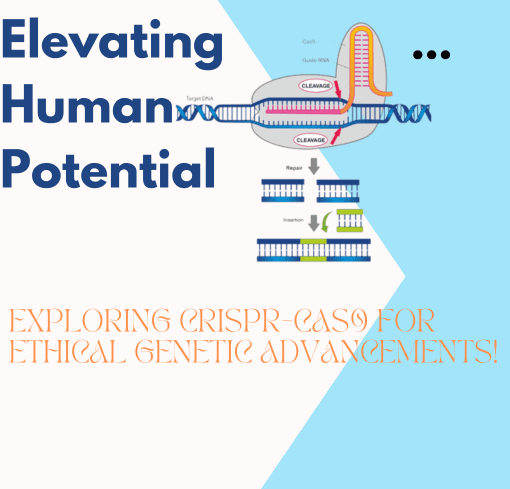
The subject of biotechnology has witnessed a game-converting leap forward in the form of CRISPR-Cas9 generation. This incredible innovation has emerged as a pivotal tool for unravelling the problematic mechanisms underlying a huge range of illnesses. By employing centred genetic adjustments in managed laboratory settings, scientists are capable of delving deep into the problematic features of particular genes and their contributions to the improvement and progression of these illnesses. The unique and powerful nature of CRISPR-Cas9 permits researchers to advantage of priceless insights into the underlying genetic elements worried, paving the manner for potential healing interventions and advancements within the discipline of medical science. This approach not only amplifies our understanding of the underlying biological processes but also bestows invaluable insights into potential therapeutic targets, bringing us tantalizingly closer to unearthing novel interventions and improved treatments.

The implications of CRISPR-Cas9 gene editing transcend the boundaries of disease treatment and venture into the realm of genetic enhancements. While this avenue of research instigates ethical considerations that demand meticulous evaluation, it presents enthralling possibilities for advancing human capabilities. Scientists can explore the potential to augment certain traits or characteristics by modifying specific genes, unlocking captivating prospects for the future. Nevertheless, it is of paramount importance to approach this domain with caution, ensuring that any interventions align with ethical and social responsibilities, guaranteeing a just and equitable application of this technology.

Additionally, to its direct applications in genetic research, the CRISPR-Cas9 era has also engendered improvements in different scientific disciplines, especially in agriculture. Its exquisiteness and efficiency have rendered it an indispensable tool for unique gene modification in crops, bolstering their resilience against illnesses, pests, and environmental stressors. This endeavour not only contributes to global food security but also fosters sustainable agricultural practices, shaping a more resilient and environmentally conscious future.

The development of CRISPR-Cas9 technology has ignited exuberance and fervour within the scientific community. Its potential for precision and efficacy has revolutionized genetic research, unveiling a world of possibilities that were once deemed inconceivable. However, it is imperative to acknowledge and address the ethical considerations surrounding its use, ensuring responsible and transparent practices that prioritize the well-being of individuals and society at large.
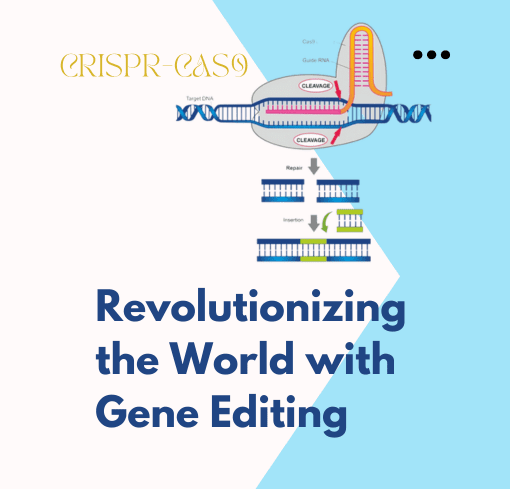
In lab techniques, As CRISPR-Cas9 gene editing continues to evolve and refine, scientists and researchers must remain unwavering in promoting its responsible application and meticulously ponder the broader implications of their work. By doing so, we can harness the prodigious power of this groundbreaking technology to unlock the enigmatic secrets of the genome, leading to improved healthcare, a profound comprehension of life’s complexities, and a luminous future for generations to come.
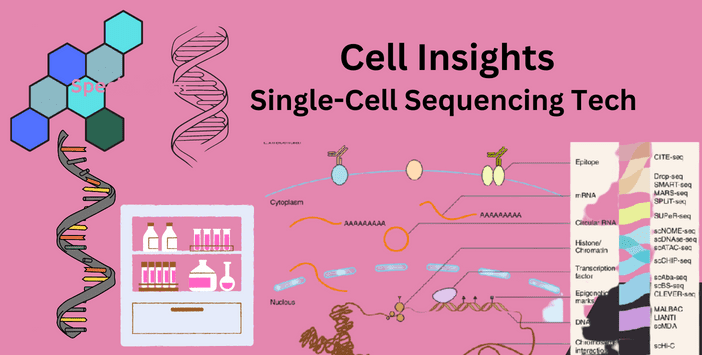
Exploring the Depths of Biology: Single-Cell Sequencing Unveils Unprecedented Complexity
The rise of single-cell sequencing has given scientists an extraordinary view into the intricate details of biology like never before. Through the meticulous unravelling of the DNA within individual cells, scientists have acquired profound insights into the intricate workings of cancer biology, developmental processes, and the extraordinary range of cells present in our bodies. This extraordinary methodology bears immense potential in deciphering the enigmatic nature of complex diseases, while simultaneously propelling the field of personalized medicine to unprecedented heights.
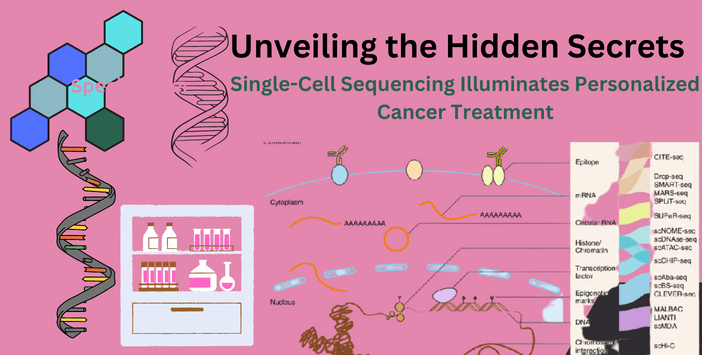
Through the power of single-cell sequencing, scientists can now examine the genetic makeup of individual cells within tumours, shedding light on the unique molecular landscapes that contribute to cancer development and progression. Unlike traditional bulk sequencing methods that mix genetic variations within a tumour, this groundbreaking approach allows for the identification and analysis of specific genetic signatures within individual cells. This newfound understanding provides a strong foundation for developing targeted therapies that can be customized to address the specific genetic characteristics of a patient’s tumour, revolutionizing the field of cancer treatment.
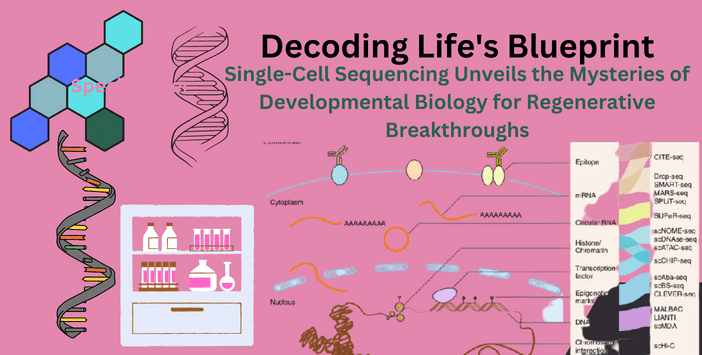
Within the realm of developmental biology, the utilization of single-cell sequencing has emerged as an invaluable asset in uncovering the intricate processes that sculpt our bodies. Through the meticulous examination of genetic profiles belonging to individual cells throughout various stages of embryonic development, scientists have attained an unparalleled understanding of the underlying mechanisms propelling cellular differentiation and commitment to specific lineages. This profound comprehension of developmental dynamics presents novel avenues in the realm of regenerative medicine, holding the potential to cultivate precise cell types for therapeutic applications and potentially address a diverse array of diseases by replacing impaired or dysfunctional tissues.
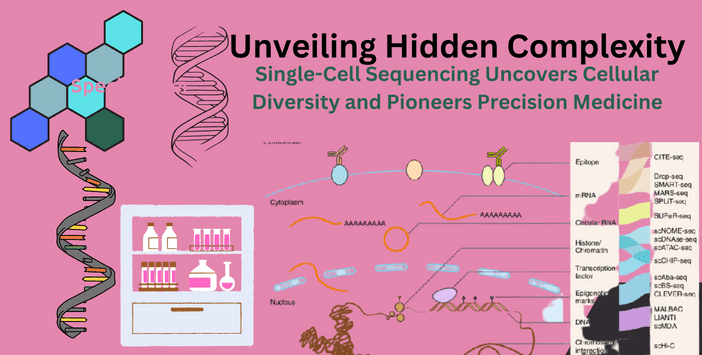
Moreover, the application of single-cell sequencing has uncovered a fascinating revelation: the astonishing diversity present within ostensibly homogeneous tissues. By scrutinizing the genetic makeup of individual cells, scientists can discern and categorize distinct cell types, thereby unravelling the complex networks of cellular interactions that underpin both well-being and disease. This newfound knowledge not only enhances our comprehension of various ailments but also harbours the potential for targeted interventions that address the precise cellular mechanisms driving the progression of these conditions. This personalized and nuanced approach signifies a significant advancement in the field of medicine, paving the way for more efficacious and tailored treatments that align with an individual’s unique biological characteristics.
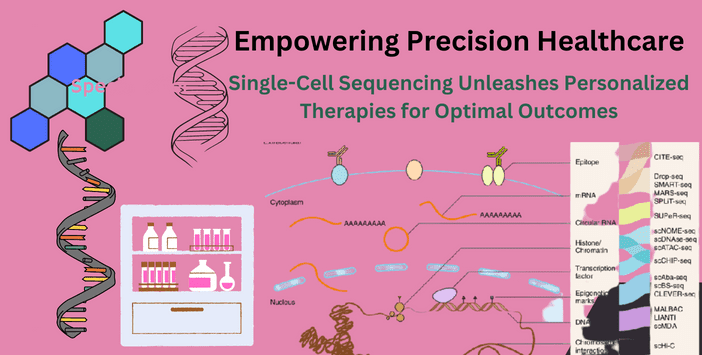
The potential of single-cell sequencing extends well beyond the boundaries of research and finds valuable application in clinical settings. By meticulously examining the genetic composition of every individual cell, healthcare practitioners can acquire a comprehensive comprehension of a patient’s specific ailment, enabling them to make well-informed choices regarding suitable treatment modalities. This personalized approach holds the transformative capacity to revolutionize the healthcare landscape by tailoring therapeutic interventions precisely towards the molecular modifications identified within an individual’s distinct cellular makeup. Consequently, this tailored precision medicine approach yields optimal outcomes, setting the stage for a paradigm shift in healthcare delivery.
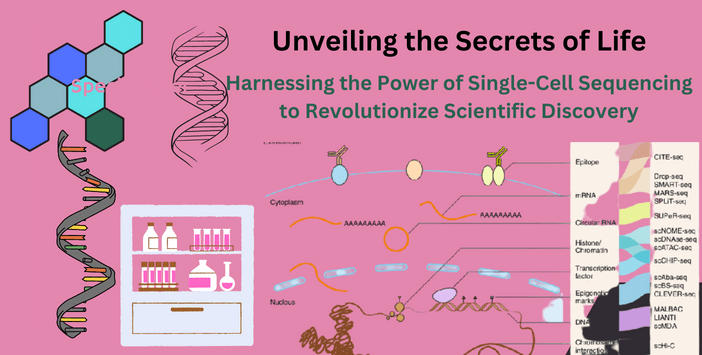
In lab techniques, As our progress in single-cell sequencing continues, we anticipate delving further into the intricate and diverse characteristics of biological systems. This groundbreaking technology holds the promise to reshape scientific research fundamentally, unearthing novel understandings of diseases, propelling the advancement of personalized medicine, and catalyzing the discovery of transformative therapies. Without a doubt, single-cell sequencing stands as an indispensable ally in our relentless quest to unravel the inner mechanisms that govern life itself.

Revolutionizing the Study of Diseases and Drug Testing: The Power of Organ-on-a-Chip Technology
The study of diseases and drug testing has been transformed by the revolutionary technology known as organ-on-a-chip. This groundbreaking approach allows scientists to cultivate miniature organ models on a chip, mimicking the conditions of real organs. It provides an exceptional platform for studying organ function, monitoring disease progression, and assessing potential treatments. This innovative method reduces reliance on traditional animal models and accelerates the drug discovery process.

Organ-on-a-chip technology serves as a powerful tool that bridges the gap between standard cell cultures and complex biological systems. By recreating the microenvironment of specific organs on a small scale, scientists can closely simulate the intricate cellular interactions, fluid dynamics, and physiological responses that occur in real organs. This faithful representation enables researchers to gain profound insights into organ function, leading to a deeper understanding of disease mechanisms and potential treatment strategies.

The use of organ-on-a-chip technology offers a unique advantage in replicating disease conditions and monitoring disease progression in real time. With the incorporation of disease-specific cells or tissues, the chip can effectively mimic the pathophysiological changes observed in patients. This serves as a valuable platform for investigating disease mechanisms, testing drug efficacy and developing personalized treatment approaches. Observing dynamic changes within organ-on-a-chip models greatly enhances our understanding of disease processes, leading to the development of targeted therapeutics that hold immense potential for treating various health conditions.

The realm of drug testing has experienced a major breakthrough thanks to the advent of organ-on-a-chip technology. This groundbreaking methodology presents an ethical and sustainable substitute for conventional animal models. For ages, animal experiments have served as the mainstay technique to evaluate the safety and efficacy of potential treatments. Nevertheless, these models frequently fall short in replicating human physiology, resulting in restricted predictability of human reactions. Fortunately, the advent of organ-on-a-chip technology has enabled researchers to conduct drug testing with higher precision and reliability by cultivating human cells or tissues on miniature chips. This groundbreaking methodology not only reduces reliance on animal experimentation but also holds great promise in improving the accuracy of predicting drug efficacy and toxicity in humans.

The versatility of organ-on-a-chip technology extends beyond individual organ models. Researchers can also create multi-organ systems by connecting different organ chips, simulating the complex interactions that occur within the human body. This interconnected approach enables the study of systemic diseases, drug metabolism, and the effects of drugs on multiple organs simultaneously. By capturing the intricate crosstalk between organs, scientists can gain a comprehensive understanding of drug responses and develop more effective treatment strategies.
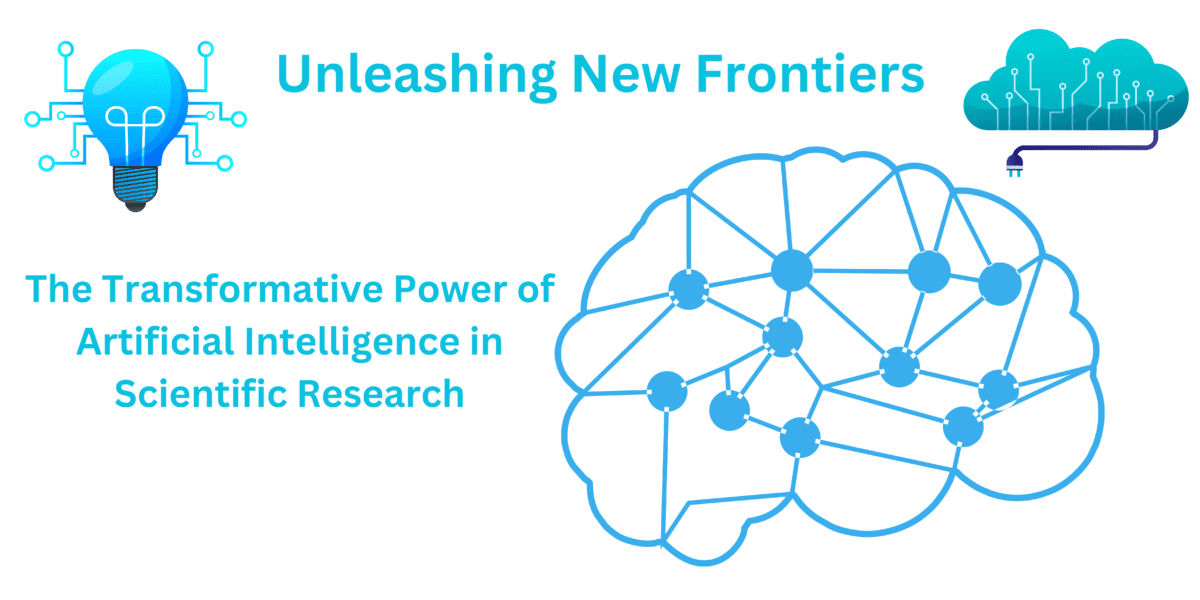
In short for lab techniques, organ-on-a-chip technology represents a groundbreaking advancement in disease research and drug testing. Its ability to mimic the physiological conditions of real organs provides a powerful and reliable platform for studying organ function, monitoring disease progression, and evaluating potential therapeutics. By reducing reliance on animal models and supplying extra accurate predictions of human responses, organ-on-a-chip generation speeds up the drug discovery system and promotes extra ethical and sustainable study practices. As this era continues to adapt, it holds the promise of reworking the sphere of biomedical research and ushering in a brand-new technology of precision medicine.

The Impact of Artificial Intelligence on Scientific Research: Unlocking New Possibilities
Artificial intelligence (AI) has revolutionized scientific research, reworking the way we analyze facts and discover hidden patterns. Its integration has spread out new avenues throughout diverse fields, inclusive of drug discovery, pathology, neuroscience, and astronomy. AI algorithms have become indispensable tools that accelerate research, improve efficiency, and provide deeper insights from vast amounts of data.

In drug discovery, AI has emerged as a game-changer. Traditional methods of identifying potential therapeutic compounds were time-consuming and costly. However, with AI, researchers can now swiftly analyze extensive libraries of chemical compounds and predict their therapeutic properties. Machine learning algorithms enable AI to identify patterns, similarities, and relationships within large datasets, helping researchers identify promising candidates for further investigation. This breakthrough expedites the drug discovery process, offering cost-effective solutions and the potential for more effective treatments.

AI-powered image analysis has revolutionized numerous scientific disciplines. In pathology, AI algorithms can accurately analyze digital pathology slides, aiding pathologists in disease diagnosis and the identification of biomarkers. This technology improves the speed and accuracy of diagnoses and opens doors to personalized medicine and targeted treatments. Similarly, in neuroscience, AI algorithms process brain imaging data, assisting researchers in mapping neural networks, identifying abnormalities, and unravelling the complexities of the brain. In the field of astronomy, AI algorithms analyze massive amounts of astronomical data, helping astronomers detect celestial objects, classify galaxies, and explore the mysteries of the universe. These advancements in image analysis significantly enhance our ability to extract meaningful information from complex datasets, driving scientific discoveries to new heights.

In addition to data analysis, AI plays a crucial role in automating and optimizing experimental processes. AI-powered robotics and automation systems can handle repetitive and labour-intensive tasks with precision and efficiency. This frees up researchers’ time to focus on more complex analyses and interpretations, expediting research timelines and reducing human error. AI algorithms also aid in experimental design and optimization by predicting optimal parameters, reducing the need for extensive trial and error experimentation.

While AI has revolutionized scientific research, it is essential to address potential challenges and ethical considerations. Transparency, interpretability, and ethical use of AI algorithms are crucial for maintaining scientific rigour and trust. Collaboration between researchers and AI experts is key to developing robust and unbiased algorithms that enhance research outcomes while addressing biases or limitations.

Shortly for lab techniques, the integration of artificial intelligence has unlocked new possibilities in scientific research. It empowers researchers to accelerate data analysis, uncover hidden patterns, and make breakthrough discoveries. From drug discovery to image analysis and experimental optimization, AI has transformed various scientific disciplines, offering improved efficiency, cost-effectiveness, and valuable insights. As AI continues to conform, it’ll form the destiny of medical studies, main to new discoveries, improvements, and improvements that enhance our information of the sector and the human circumstance.

Conclusion
Scientific studies have passed through a substantial transformation way to advanced laboratory strategies, commencing up new opportunities and pushing the limits of understanding in various fields. The innovative CRISPR-Cas9 gene-enhancing technology has absolutely revolutionized genetic research, imparting potential remedies for genetic disorders, unravelling ailment mechanisms, and even exploring the realm of genetic enhancements. However, it is important to carefully address ethical considerations to ensure responsible and fair application.

Single-cell sequencing has provided an unprecedented level of detail in understanding biology, allowing researchers to explore the complexities of cancer biology, developmental processes, and cellular heterogeneity. This technique has the potential to revolutionize personalized medicine by tailoring treatments based on an individual’s unique genetic characteristics, offering more precise and effective interventions.
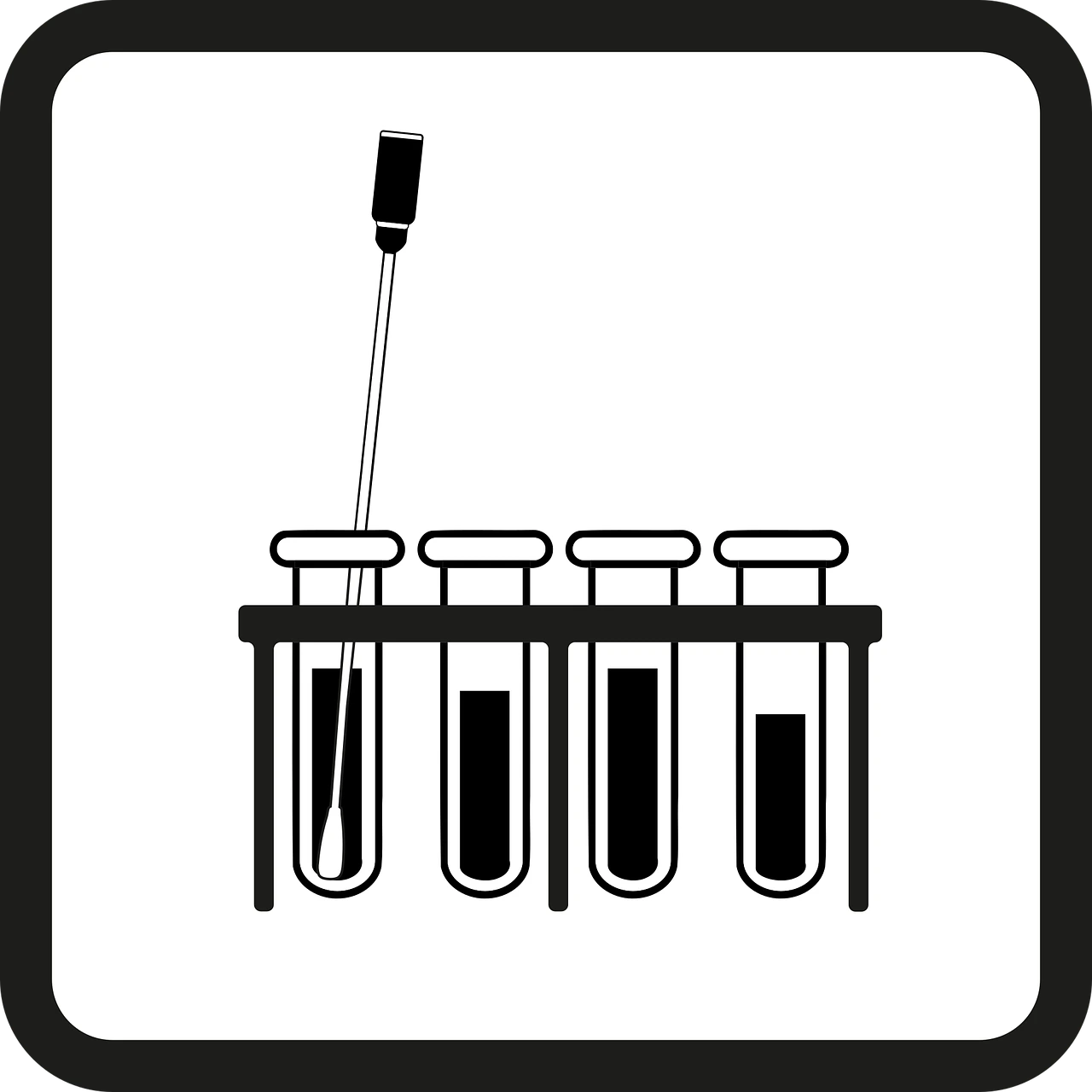
Organ-on-a-chip technology has redefined disease research and drug testing by creating miniature organ models that accurately replicate the conditions of real organs. This innovation reduces reliance on animal models, speeds up the drug discovery process, and enables the study of organ function and disease progression in real time. The ability to create interconnected multi-organ systems provides a comprehensive understanding of drug responses and facilitates the development of more effective treatment strategies.

Artificial intelligence (AI) has played a transformative role in scientific research, revolutionizing data analysis and uncovering hidden patterns. AI algorithms have expedited drug discovery by quickly analyzing vast libraries of chemical compounds and predicting their therapeutic properties. Furthermore, AI-powered image analysis has improved fields such as pathology, neuroscience, and astronomy by assisting in diagnoses, mapping neural networks, and exploring the universe. AI has also enabled the automation and optimization of experimental processes, increasing efficiency and reproducibility.

While these cutting-edge lab techniques offer immense potential, it is crucial to address ethical considerations, promote transparency, and encourage collaboration between researchers and AI experts to ensure responsible and unbiased practices. By addressing these challenges, scientists can harness the power of these transformative techniques to advance healthcare, deepen our understanding of life’s complexities, and create a brighter future for generations to come.
For More Information ![]() Laboratory techniques and procedures articles from across Nature Portfolio
Laboratory techniques and procedures articles from across Nature Portfolio

FAQ
Q: What is CRISPR-Cas9 gene editing technology?
A: The CRISPR-Cas9 gene-enhancing era is a groundbreaking approach that permits scientists to make unique changes to the DNA of living organisms. It makes use of a molecular system referred to as CRISPR-Cas9, which acts like molecular scissors to goal and modify particular genes. This technology has superb potential for addressing genetic disorders and riding development in genetic research throughout diverse fields.
Q: What is single-cell sequencing and how does it revolutionize biological research and personalized medicine?
A: Single-cell sequencing is a method that permits scientists to research the genetic information of individual cells. It revolutionizes biological research by providing insights into complex processes like cancer development and cellular differentiation. Personalized medicine, enables the development of tailored treatments based on an individual’s specific cellular characteristics.
Q: What is organ-on-a-chip technology and how does it transform disease research and drug testing?
A: Organ-on-a-chip technology cultivates miniature organ models on a chip to mimic real organs. It revolutionizes disease research and drug testing by providing a platform to study organ function, monitor disease progression, and test potential treatments. It reduces reliance on animal models and enables more accurate predictions of human responses.
Q: How has artificial intelligence (AI) revolutionized scientific research?
A: AI has transformed scientific research by speeding up data analysis, uncovering hidden patterns, and automating experimental processes. It enhances efficiency, accelerates discoveries, and provides valuable insights across various fields.
Q: How have advanced laboratory techniques revolutionized scientific research and what ethical considerations are involved?
A: Advanced laboratory techniques have revolutionized scientific research by providing new insights and possibilities. However, ethical considerations must be addressed to ensure responsible use and fairness in their application.
